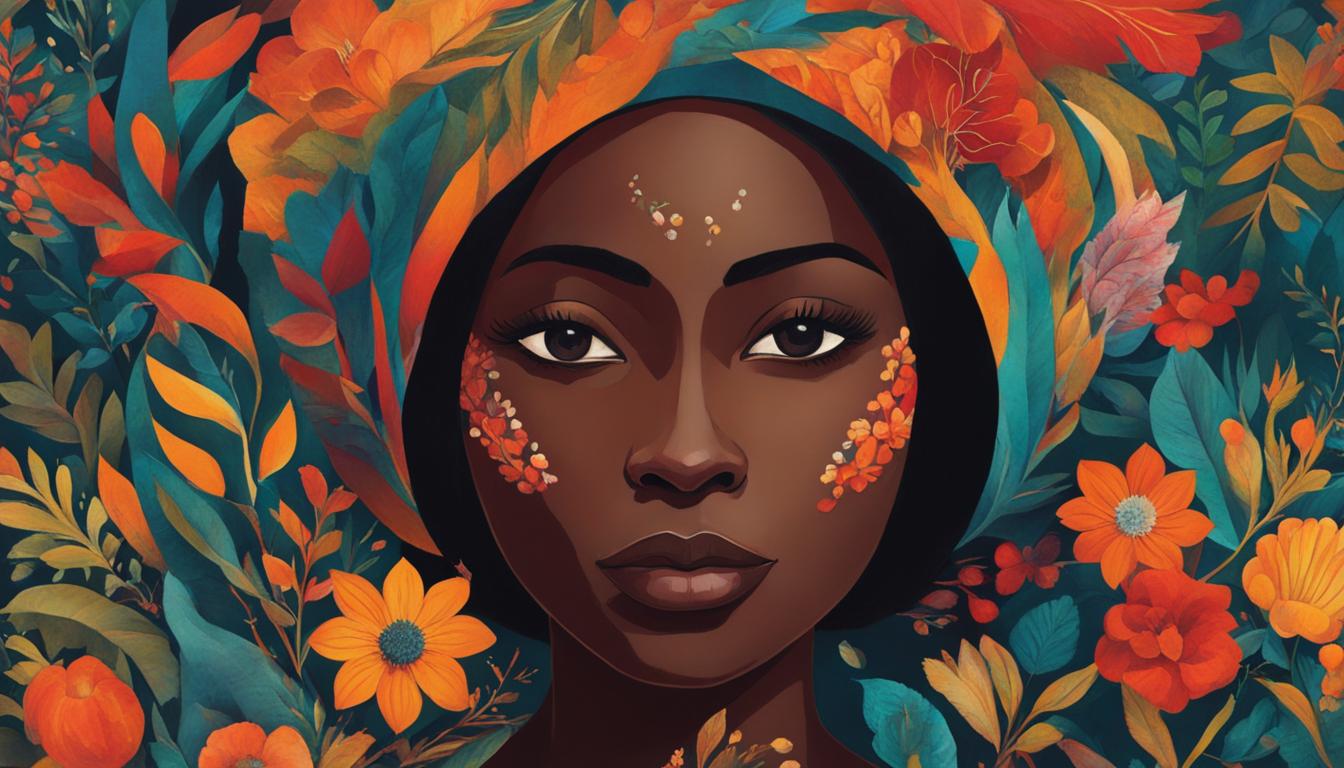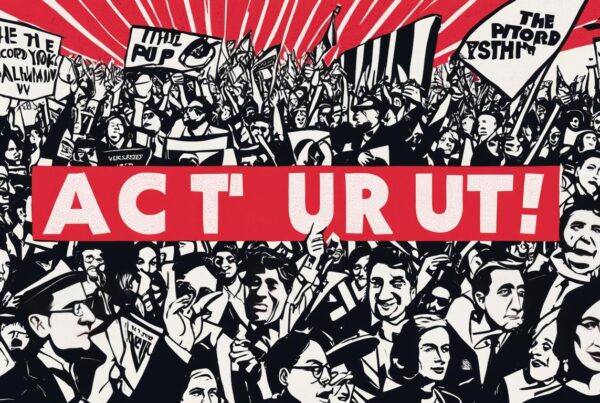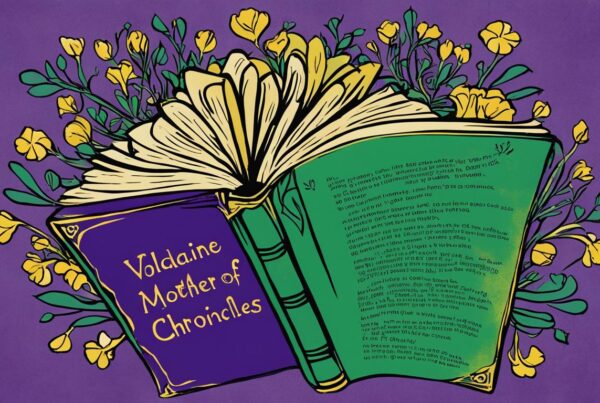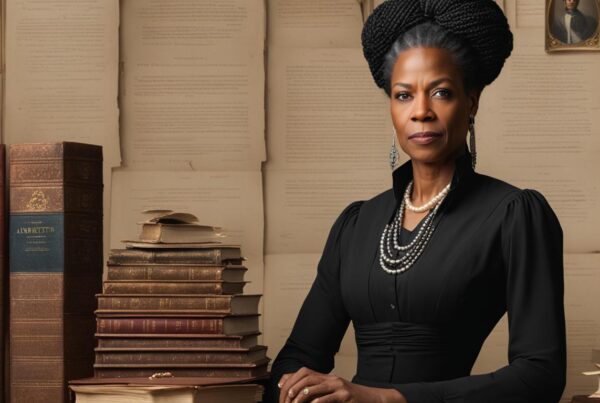Welcome to our audiobook review of “How Beautiful We Were” by Imbolo Mbue. In this article, we will explore how Mbue’s novel celebrates the tenacity of human spirit in the face of adversity. As we delve into the pages of “How Beautiful We Were,” we will analyze themes of resilience, community, and social justice, showcasing the power of united strength in overcoming oppression.
Through our review of Imbolo Mbue’s latest offering, we will examine the impact of her unique writing style, the socio-political commentary underlying her story, and the critical reception of “How Beautiful We Were.” Join us as we embark on a literary journey through one of the most compelling works of contemporary fiction.
Introduction to Imbolo Mbue’s “How Beautiful We Were”
Imbolo Mbue’s second novel, “How Beautiful We Were,” is a sweeping tale of resilience and activism in the face of corporate greed and environmental devastation. Published in March 2021, Mbue’s follow-up to her critically acclaimed debut, “Behold the Dreamers,” introduces readers to the fictional African village of Kosawa and its inhabitants as they fight to protect their land and way of life from an American oil company.
The novel spans multiple generations, weaving together the stories of different characters who contribute to the community’s resistance efforts in their own unique ways. At the heart of the story is Thula, a young girl who grows up to become a fierce and determined leader in the fight against the encroaching oil company.
Mbue masterfully brings her characters and their struggles to life through her powerful prose, exploring themes of resistance, solidarity, and the often-tragic consequences of corporate greed. In the following sections, we will delve deeper into the various aspects of “How Beautiful We Were,” including Mbue’s writing style, the novel’s socio-political commentary, and the critical reception to this important and timely work. But first, let us take a closer look at the plot and characters that make up Imbolo Mbue’s “How Beautiful We Were.”
The Power of Imbolo Mbue’s Prose
Imbolo Mbue’s writing style in “How Beautiful We Were” is a remarkable demonstration of the power of words. Her prose is raw, evocative, and emotionally charged, creating vivid imagery in the minds of listeners.
Mbue’s writing style is characterized by a seamless integration of dialogue and narration, offering rich insights into the characters’ thoughts, feelings, and motivations. Through her writing, Mbue captures the essence of her characters, making them come alive and bringing their stories to the forefront.
One of the most striking aspects of Mbue’s prose is her ability to convey complex emotions and experiences in a simple yet profound manner. She focuses on the small details, capturing the subtleties of human behavior and inner thoughts that often go unnoticed. Her prose is a testament to the power of storytelling, as she weaves together intricate plotlines and multifaceted characters to create a truly captivating audiobook experience.
“Her writing is like a painting – every word is carefully chosen and placed to create a beautiful and meaningful picture. It’s an absolute joy to read.” – Book Riot
The power of Imbolo Mbue’s writing style lies not only in its eloquence but also in its relevance to the themes explored in “How Beautiful We Were”. Her prose highlights the struggles of ordinary people fighting against societal and environmental injustices, lending nuance and depth to the audiobook’s exploration of resistance and activism.
Examples of Mbue’s Prose in “How Beautiful We Were”
| Snippet | Description |
|---|---|
| “We heard about it in the morning, the day it happened, the news arriving in fragments at first. Our children, playing in the streets, were the ones who told us.” | This snippet illustrates Mbue’s ability to set the scene and create tension in a few short sentences, drawing listeners into the story. |
| “But I do not want a vision or even a dream of something different. I want something different, I want to live to see it. I am tired of dreaming.” | This quote showcases Mbue’s use of poignant language to convey the characters’ yearning for change and their frustration with the status quo. |
Overall, Imbolo Mbue’s prose is a testament to her talent as a writer and her ability to craft an engaging and thought-provoking audiobook. Her unique writing style adds depth and complexity to the themes explored in “How Beautiful We Were,” making it a must-listen for anyone looking for a powerful and resonant reading experience.
Exploring Themes of Resistance and Activism
In “How Beautiful We Were,” Imbolo Mbue showcases the characters’ unwavering determination to fight for justice in the face of oppression. The novel delves deep into themes of resistance and activism, highlighting the importance of standing up for what’s right, and the consequences that come with doing so.
The story is set in the fictional African village of Kosawa, which has been devastated by pollution and exploitation caused by an American oil company. The villagers’ peaceful protests and legal actions yield no results, and they are left with no choice but to take matters into their own hands.
“The power of the people is greater than the people in power”
The above quote, which appears at the beginning of the novel, sets the tone for the themes of resistance and activism that permeate throughout the story. The characters are portrayed as heroes who, despite facing insurmountable odds, remain steadfast in their pursuit of justice.
Their struggle emphasizes the importance of collective action and the power of standing in solidarity. The novel highlights how a community can come together to fight against corporations that prioritize profits over people and the environment.
The Role of Activism in Achieving Change
The novel emphasizes the transformative power of activism and how it can drive social change. The people of Kosawa refuse to be silenced and use their voices to demand accountability from those in power. Their activism inspires others to join the movement, and they find hope and strength in each other’s company.
The Cost of Resistance
The characters’ struggle for justice comes at a great cost. The company and the government respond with violence, and the villagers are met with brutality and oppression. The novel doesn’t shy away from the harsh realities of resistance and showcases the sacrifices that are necessary for change to occur.
Unveiling the Community Bond
One of the most striking themes in “How Beautiful We Were” is the power of community and solidarity. Throughout the audiobook, Imbolo Mbue portrays the close-knit bond between the residents of Kosawa, a small African village, as they fight against a multinational corporation that is polluting their land and destroying their way of life.
Through Mbue’s descriptive prose, we witness the villagers’ unwavering determination to stand together and protect their home, even in the face of violence and intimidation from the corporation and its allies. Their communal bond proves to be a vital source of strength and resilience, allowing them to endure and overcome unimaginable hardships.
The Impact of Communal Bond on Resilience
Mbue’s portrayal of the community bond highlights the transformative impact of solidarity on individual and collective resilience. The characters draw strength and courage from their shared experiences and connections, motivating them to stand up for their beliefs and fight for justice.
“We are not weak because we don’t have guns. We have something stronger… a fierce conviction that we are right and an unbreakable bond of brotherhood and sisterhood that connects us all.”
The Role of Community in Overcoming Adversity
Mbue’s portrayal of community solidarity is particularly relevant in today’s world, where social fragmentation and isolation can create significant challenges for individuals and communities. By showcasing the power of communal bonds and the resilience that they can foster, “How Beautiful We Were” offers a compelling testament to the importance of interconnectedness and solidarity in overcoming adversity.
A Tale of Resilience and Survival
Imbolo Mbue’s “How Beautiful We Were” portrays a world in which resilience and survival go hand in hand. The audiobook is a powerful testament to the human spirit, showcasing the indomitable will of the characters and their ability to overcome even the most challenging circumstances.
The story is set in a small African village that has been ravaged by the greed and corruption of a foreign oil company. Despite the destruction of their land and the loss of their loved ones, the villagers refuse to be broken. Led by a courageous young girl named Thula, they band together to demand justice and fight for their survival.
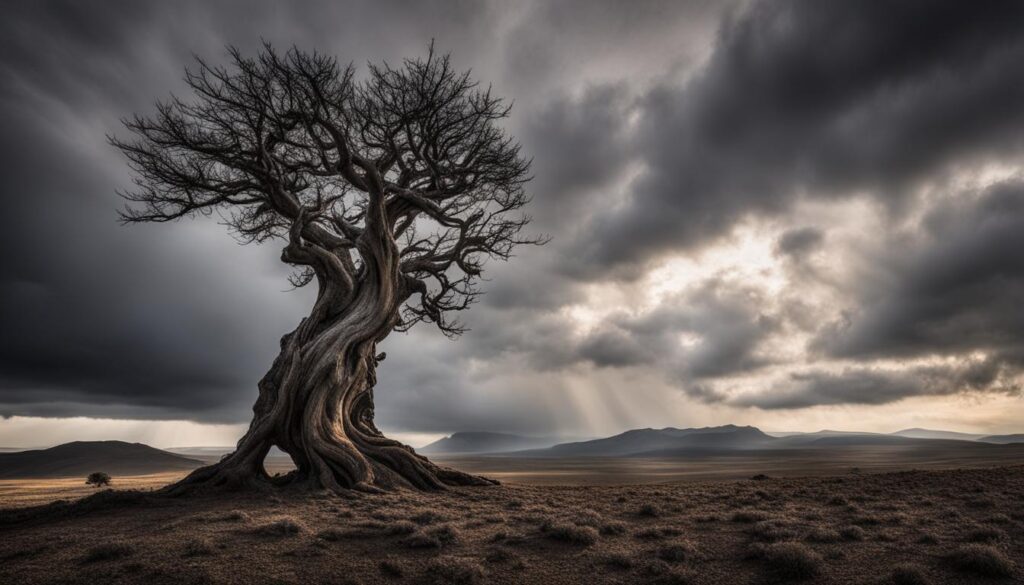
The audiobook’s depiction of resilience is both inspiring and heart-wrenching. The characters face unimaginable hardships and injustices, yet they never lose hope or give up on their fight for a better future. Through their determination and unwavering strength, they demonstrate that even in the face of adversity, anything is possible.
The theme of survival is also prominent throughout the audiobook. The villagers must navigate a world that is stacked against them, facing both natural and man-made disasters. Despite this, they find a way to persevere, using their ingenuity and resourcefulness to make the most of their limited resources.
Overall, “How Beautiful We Were” is a powerful testament to the resilience and survival of the human spirit. It is a story that will inspire and empower listeners to never give up, even when the odds seem insurmountable.
Imbolo Mbue’s Socio-Political Commentary
Imbolo Mbue’s “How Beautiful We Were” serves as a poignant commentary on socio-political issues. The audiobook offers a glimpse into the struggles faced by the people in a fictional African village as they fight against a corrupt and indifferent government.
Mbue tackles various themes such as environmental destruction, exploitation of natural resources, and the devastating effects of foreign corporations on local communities. The audiobook highlights the grave consequences of unchecked greed and the need for collective action in the face of social injustice.
“…we must be courageous enough to confront laid-down conventions and speak up for truths that make us uncomfortable.”
Mbue’s ability to weave together complex societal issues into a compelling narrative is a testament to her unique storytelling abilities. By raising important questions and exposing the ills of society, “How Beautiful We Were” is a bold and insightful work that challenges readers to confront uncomfortable truths.
The Narrator’s Impact on the Audiobook Experience
One crucial aspect of any audiobook is the performance of the narrator. The narrator plays a vital role in bringing the characters to life, setting the tone and atmosphere of the story, and creating an immersive experience for the listener.
In the case of “How Beautiful We Were,” the narrator’s skillful delivery brings the characters’ struggles, triumphs, and challenges to life, painting a vivid and engaging picture that captivates the listener’s attention. The narrator’s ability to infuse emotion and nuance into each character’s dialogue further enhances the audiobook experience, lending the story an added dimension of depth and complexity.
“The narrator’s soothing voice and impeccable pacing captured the story’s essence and brought to life the characters’ journey of resilience and resistance in a way that simply reading the book could not match.”
Reviews of the audiobook have been overwhelmingly positive, with many praising the narrator’s performance as a standout element of the experience.
| Review Source | Quote |
|---|---|
| Audible | “The narrator’s ability to seamlessly transition between characters, accents, and emotions is unparalleled and elevates the story to new heights.” |
| Goodreads | “The narrator’s performance is a tour de force, managing to convey the story’s powerful messages of societal injustice and collective resilience with immense skill and sensitivity.” |
| The New York Times | “The narrator’s haunting voice lingers long after the story’s end, a testament to their exceptional talent in bringing Imbolo Mbue’s words to life.” |
Overall, the narrator’s impact on the audiobook experience of “How Beautiful We Were” cannot be overstated. Their masterful performance adds depth, complexity, and emotional resonance to the story, culminating in an unforgettable and captivating listening experience.
Critical Reception of “How Beautiful We Were”
“How Beautiful We Were” has left a lasting impression on readers and literary critics alike. The book has received widespread critical acclaim, with many reviewers praising Imbolo Mbue’s powerful storytelling and unique perspective.
According to BookPage, “Mbue has crafted a tale that is both epic and intimate, exploring not only the political and environmental disasters that befall the village but also the very personal tragedies that tear families apart.” Similarly, The Washington Post hails the book as “a haunting and powerful story of resistance, resilience, and hope.”
The novel has also received glowing reviews from The New York Times, NPR, and The Guardian, amongst many others.
Overall, “How Beautiful We Were” has been lauded for its exploration of themes such as community, resistance, and activism, as well as Mbue’s intricate prose. The book has cemented its place as one of the most impactful literary works of recent years.
Comparing “How Beautiful We Were” to Imbolo Mbue’s Previous Works
Imbolo Mbue’s “How Beautiful We Were” marks her second published work, following the critically acclaimed “Behold the Dreamers.” While both novels explore themes of resilience and activism, they differ in their settings, characters, and writing styles.
Setting and Characters
“Behold the Dreamers” is set in New York City and follows the lives of a Cameroonian immigrant couple and their son as they navigate the challenges of pursuing the American Dream amidst the 2008 financial crisis. In contrast, “How Beautiful We Were” takes place in a fictional African village called Kosawa, which is plagued by environmental degradation and exploited by a ruthless American oil company. The novel features a diverse cast of characters, including a young revolutionary, a wise elder, and a determined mother, all of whom unite to fight for their community’s rights.
Writing Style
While both novels showcase Imbolo Mbue’s skillful prose, they differ in their writing styles. “Behold the Dreamers” takes a more straightforward and direct approach, utilizing descriptive language and concise dialogue to capture the characters’ experiences. “How Beautiful We Were,” on the other hand, employs a more lyrical and poetic language, evoking the beauty and tragedy of the characters’ struggles.
| Behold the Dreamers | How Beautiful We Were | |
|---|---|---|
| Setting | New York City | Fictional African village Kosawa |
| Main Characters | Cameroonian immigrant couple and their son | Diverse group fighting against American oil company |
| Writing Style | Straightforward and descriptive | Lyrical and poetic |
Overall, while “Behold the Dreamers” and “How Beautiful We Were” share common themes, they showcase Imbolo Mbue’s versatility as a writer and her ability to draw readers into vastly different worlds. Whether you’re a fan of her previous works or discovering her for the first time, both novels are a testament to Mbue’s commitment to storytelling and her celebration of resilience in the face of adversity.
The Importance of “How Beautiful We Were” in Contemporary Literature
Imbolo Mbue’s “How Beautiful We Were” holds significant importance in contemporary literature. The audiobook’s exploration of resilience, resistance, and community bonds aligns with ongoing discussions and movements towards social justice and equality.
“How Beautiful We Were” carries a poignant message of hope and perseverance, showcasing the unwavering strength of marginalized communities. Mbue’s prose and vivid storytelling are a testament to the power of words and their ability to ignite change.
“…Mbue’s ‘How Beautiful We Were’ is a timely reminder of the importance of fighting for justice and the power of community bonds in overcoming adversity.”
Through “How Beautiful We Were”, Mbue elevates the voices of those often unheard and brings to light the struggles and triumphs of those fighting for a better tomorrow. Such a contribution is invaluable in today’s world, where discussions and actions towards social justice have gained much-needed momentum.
The significance of “How Beautiful We Were” in contemporary literature is undeniable. Mbue’s work serves as a beacon of hope and resilience for readers to draw inspiration from and a reminder that even in the face of adversity, change is possible.
Conclusion
Imbolo Mbue’s Audiobook “How Beautiful We Were” is a powerful exploration of resilience, community bonds, activism, and socio-political commentary. Mbue’s unique writing style and the narrator’s excellent performance make this audiobook a must-listen for all who enjoy thought-provoking literature.
The depiction of the characters’ unwavering strength and their ability to overcome seemingly insurmountable challenges in the face of oppression resulted in a vivid tale of resilience and survival. The theme of resistance and activism was also prominent throughout the audiobook, highlighting the characters’ determination to fight for justice.
Mbue’s socio-political commentary addressed relevant issues and shed light on social inequalities, and the strong sense of community and interconnectedness portrayed emphasized the pivotal role of communal bonds in the characters’ resilience. “How Beautiful We Were” has received critical acclaim, and its significance in contemporary literature is undeniable.
Overall, Imbolo Mbue’s “How Beautiful We Were” is a must-listen for anyone interested in a compelling story that explores resilience, community, activism, and socio-political commentary.
